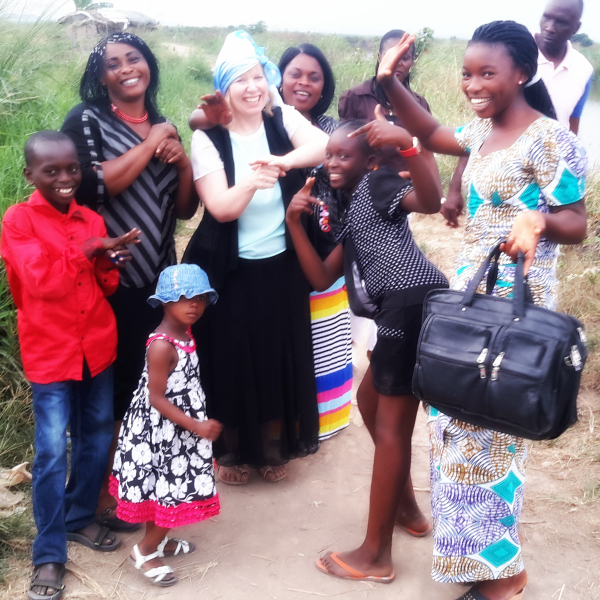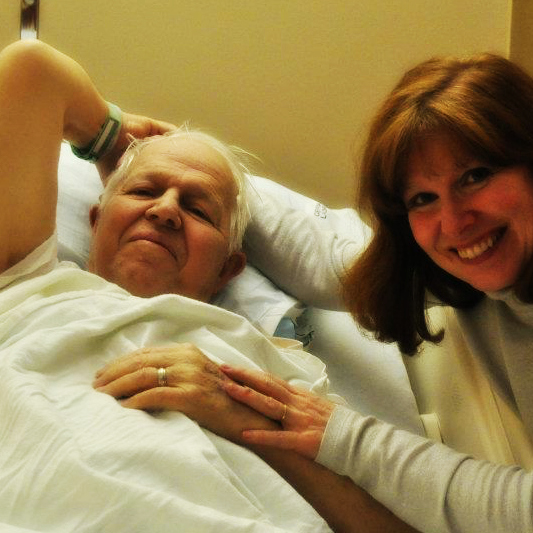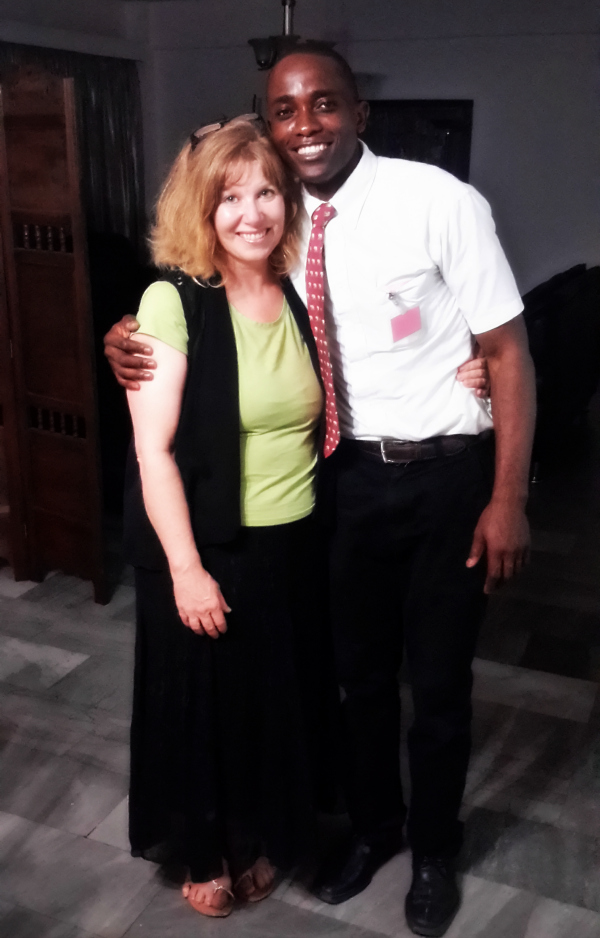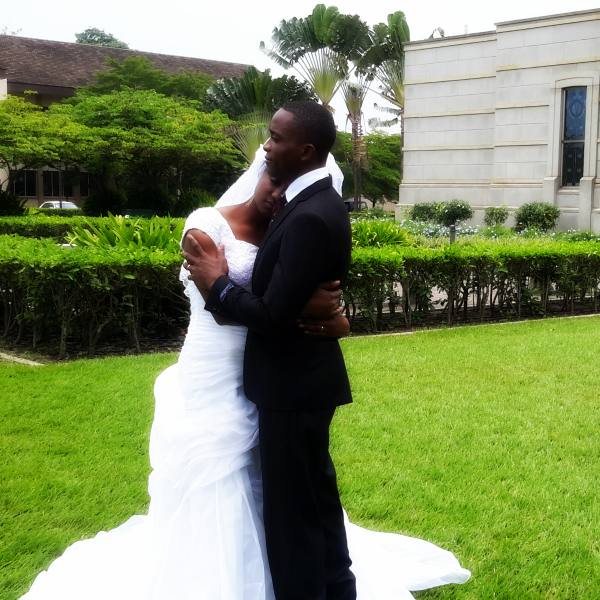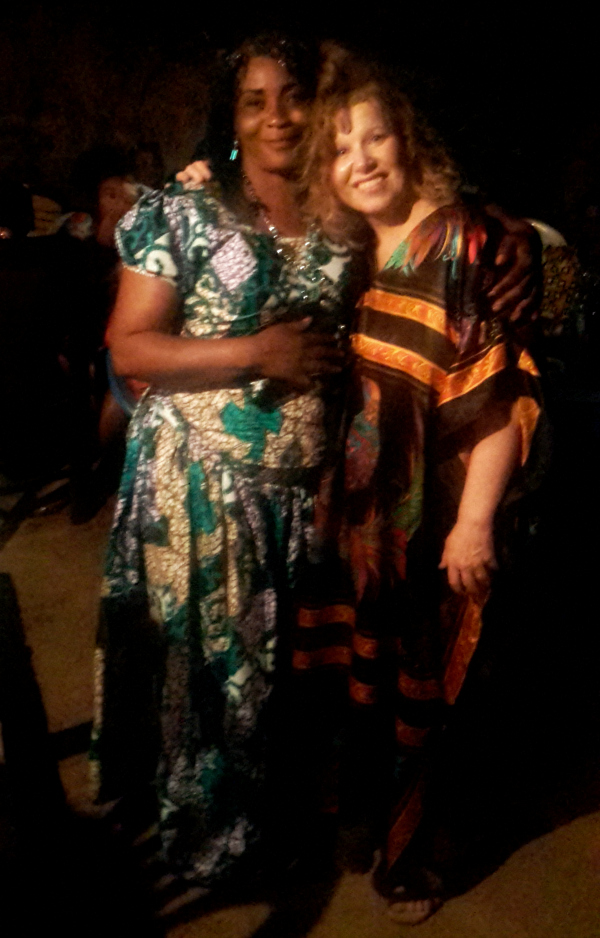My father is a linguist, and so I have spent all of my life exposed to different words and sounds. When other families went to Disneyland, we went to Guatemala. Inevitably, I learned a couple of languages, and then incomprehensible sounds which could not possibly make sense suddenly did. Then I could pick up a string of words, and finally the thought. I revert to Spanish if my father, who can’t hear well, indicates that he didn’t understand me. Some extra hearing comes to him when I use that language.
One of his last joys (his life is winding down, though he is still with us) is in helping me prepare to go to Africa.
Dad traveled throughout the world during his eighty-four years. His patriarchal blessing told him that he’d be “an ambassador for the Lord in many lands.” And so he has been. He is fluent in all fo the romance languages, Chinese, Finnish, Russian, and more dialects than you likely have never heard of. I have seen him converse with native Mayans, native Chinese, native Russians, etc. He does it in their language. I remember so well the moment when our whole family was in Patzicia, Guatemala and Dad was speaking in sacrament meeting. All of those present were fluent in the dialect, Cakchiquel, but only a few were truly fluent in Spanish. Dad started in Spanish and then said, “And now, if you’ll excuse me, I would like to speak in Cakchiquel.”
The chapel woke up. It felt like the cinderblocks themselves started buzzing. Women who had been sleeping were jarred awake by the truth that a Gringo was speaking their language.
The chapel woke up. It felt like the cinderblocks themselves started buzzing. Women who had been sleeping were jarred awake by the truth that a Gringo was speaking their language.
People were drawn to him. He was helping the missionaries learn Cakchiquel. Several of these missionaries would later translate selections from the ook of Mormon into the dialect. I remember one of the Indians, Manuel, who was paid to help teach and translate. I recall seeing him at church with new, white pants. It was a lovely sight. I remember the children laughing at me when I tried to pronounce a word which was easy for them, but which included a sound I had never made. And I remember Daniel Choc, who was like my father’s new son. I remember Daniel’s laughter as he helped the missionaries learn his native language. During that time, Daniel was called as the first Cakchiquel missionary for the Church. I was at his farewell in Patzicia, which was attended by the entire village, it seemed. Religious affiliation didn’t matter that day; one of their own was going to be a missionary. I wonder if Daniel would have gone on his mission without my father’s influence. It doesn’t matter, but it won’t surprise me to learn later that Dad’s devotion impelled this young Mayan to join the other elders. And how I remember my father’s tears when he learned that Daniel had been killed in the aftermath of the terrible 1976 earthquake. Many of the missionaries believed that he, the first Cakchiquel missionary, was teaching the gospel to the 27,000 Cakchiqueles who had died in the initial quake.
Now Dad Is working with me on a dialect spoken in the Congo called Lingala. I attend him three times a week at dialysis, and he brings Lingala lessons for me.
I have my own adopted son there in the DR-C, a young man who had been in a revolutionary school before joining the LDS church, and who served a great mission. Because my husband and I had been in a French-speaking MTC branch in Provo, I got to know a group of men headed to the DR-Congo mission. Through then, I met Aime Mbuyi, this former revolutionary.
After his mission ended, I continued to communicate with him, and went through the roller coaster of his romantic life via email. Finally, he was engaged, and I was scheduled to make a film (Heart of Africa) in the Congo, a project I had come up with on my own. We would film Aime’s various wedding ceremonies as part of our b-roll, and then get him and his bride, Steffy, to a temple to be sealed.
Before leaving for Africa, I asked my father to give me a blessing. Normally, I would have asked my husband, but for this particular trip, given what I was doing, it seemed appropriate to ask my father. Dad is in poor health and unable to stand well, so I knelt by his bed as he blessed me. He promised that I would be protected, that I would be able to communicate, and that my face would be “that of an angel” to those I would meet in the Congo.
Two days later, I was on my way.
I met Aime’s mother, Dorothy, at the bride price ceremony. She hugged me as though I were her long-lost friend. My French was awful, and she knew no English, but we did communicate friendship. In learning languages, I had also learned unspoken languages—how we make contact before we know which words to use. Through non-verbal communication, Dorothy and I were instant sisters.
The day after the bride-price ceremony, I was invited to be with Dorothy and the rest of her children. There, at their humble home, I saw Dorothy tearing cassava leaves for dinner. I immediately sat beside her and began to do what she was doing. She laughed. Later, I tried carrying a jug on my head, a feat I did miserably, to the delight of my Congolese observers. After that hilarious failure, Dorothy took me on a walk. She wanted me to see how beautiful her country was.
We went through trash-edged streets and hopped over puddles of sewage to get to the beautiful part—fields and fields of green, with a river at our side. We walked arm in arm and took pictures. Dorothy and her daughters taught me some Lingala words, and laughed as I repeated them.
Then it was dusk and time to go back to my lodging.
At this point, I needed to use every bit of French I had learned. It was clear that Dorothy had an important message. Amazingly, I understood it all.
“I have always known that my son was special, that he had a great future. But I am poor. I had no way to help him. I prayed and prayed. I begged God to send me an angel to help my son. And God sent you. You are the angel.”
I embraced her.
The whole family walked me to the car, where the driver was standing, and then started singing “God Be With You Till We Meet Again” in French. I responded, “Kitoko mingi”—Lingla for “How beautiful!”
Three days later, we took Aime and Steffy Mbuyi to the Ghana Temple to be sealed. I sat in the mother’s seat, representing Dorothy with love.
I have thought about the sweet privilege I have had to see my father mingle in love with people from many cultures. What a magnificent gift! I will return to the Congo in May to make “Heart of Africa,” and will greet Dorothy with all the love of a long-lost sister. There will be joy.
Margaret Blair Young taught creative writing and LDS literature at BYU for thirty years, and is now working on "Heart of Africa," a film based on true experiences of missionaries in the DR-Congo mission. After the film is done, She and her husband plan on serving multiple missions in Africa, a place in great need of senior couples.
""Heart of Africa" is a feature film set in the Democratic Republic of Congo, a country consistently misrepresented. We will show it in its dignity and beauty. The film is based on experiences of missionaries there, both African and Anglo. One of the missionaries is a Congolese former revolutionary and another a young man from Idaho who has heretofore not seen black people. Aime Mbuyi, who was a revolutionary before he became a missionary, has provided the screenwriter with full descriptions of the revolutionary meetings, including the songs sung at the boarding school where the revolutionaries lived."
To learn more watch video and then visit "Heart of Africa" on Kickstarter to see how you can help to make this film a reality.
To learn more watch video and then visit "Heart of Africa" on Kickstarter to see how you can help to make this film a reality.
Continue reading at the original source →




